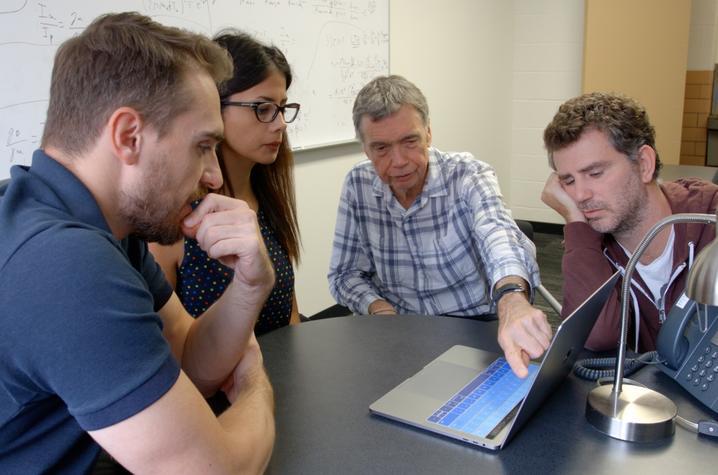Gary Ferland Named American Astronomical Society Fellow

Gary Ferland, a professor in the University of Kentucky College of Arts and Sciences' Department of Physics and Astronomy, has been named a fellow by the American Astronomical Society (AAS). Ferland is one of 31 members recognized by the organization for his innovative and significant contributions to astronomy.
Ferland was honored for his work in developing and applying “Cloudy,” a special computer code that studies how light from distant celestial bodies is produced.
“This award is a great honor, and is as much to UK as to me,” Ferland said. “Over the last 40 years, several dozen UK undergraduates, graduate students and postdocs have developed Cloudy into one of the most widely used codes in theoretical astrophysics, with about 400 papers citing it in their research each year.”
Ferland says UK is one of the few places where all of this has been possible.
“I originally came to Lexington in 1980 because UK had exactly the same model IBM supercomputer as Cambridge University, where I was a member of the staff,” he said. “The open source software movement had not yet started, and computer codes were not a significant way of doing theoretical astrophysics. UK actively supported the development of Cloudy, especially through our Center for Computational Sciences and its director John Connolly. National Science Foundation funding started in 1981, and they required that all project results be openly available. Cloudy then became an open source theoretical astrophysics code, one of the first.”
Learn more about Ferland and the Cloudy project.
The AAS is the major organization of professional astronomers in North America. The AAS Fellows are honored for original research and publication, innovative contributions to astronomical techniques or instrumentation, significant contributions to education and public outreach, and noteworthy service to astronomy and to the society itself.
“It is wonderful to be able to recognize the scientific accomplishments and service to astronomy of a small group of our outstanding members each year,” said AAS President Paula Szkody, from the University of Washington. “Most prizes celebrate only one or two people, but the AAS Fellows program allows us to showcase the achievements of a larger number of AAS members at a wide variety of institutions and across the full spectrum of the astronomical sciences.”
For more information about the AAS and the fellowships, visit https://aas.org/press/aas-fellows-2021.
Credits
Jenny Wells-Hosley (Public Relations & Strategic Communications)

